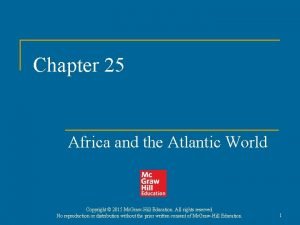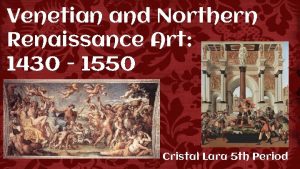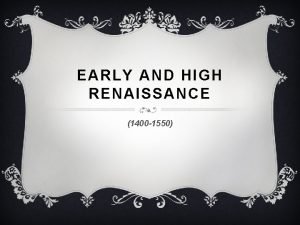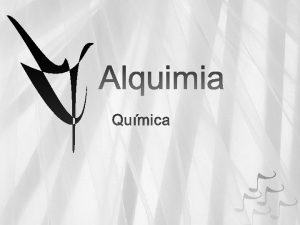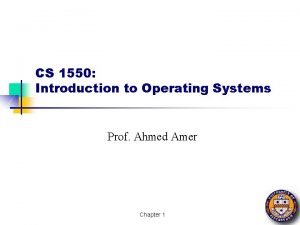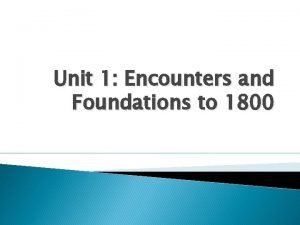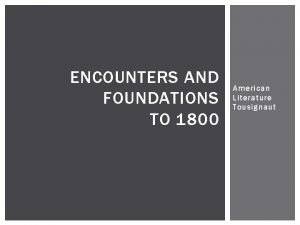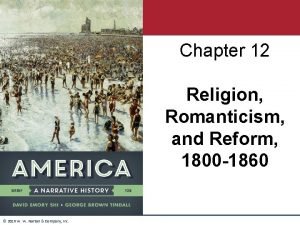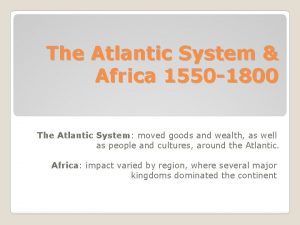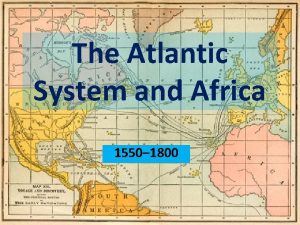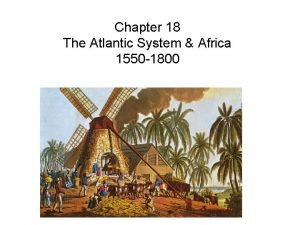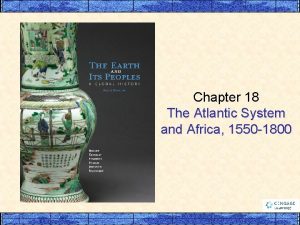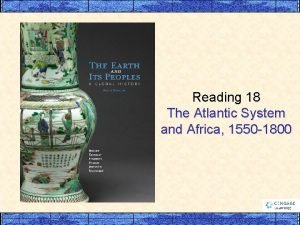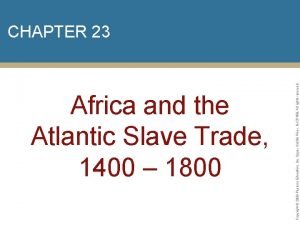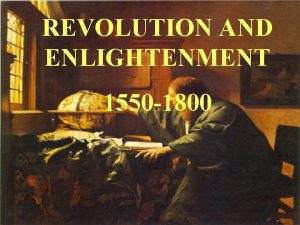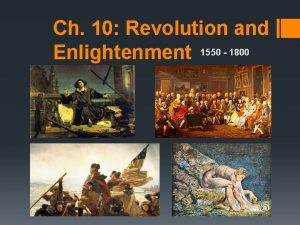The Atlantic System and Africa 1550 1800 African














- Slides: 14

The Atlantic System and Africa 1550 -1800

African Slave Trade

African Slave Trade • Alliances between European traders and African political elites. • Kidnappings and prisoners of local tribal war were taken in interior of Africa (Exchange slaves for firearms).

Economies of Plantations • Cheap labor- 1 st -Indentured servants (7 years then free), encomienda (Spanish) slowly changed to African slaves. • Spanish and Portuguese cultivated sugar. • English grew tobacco. • Both very labor intensive- leads to expansion of slavery. • Soil exhaustion and deforestation of these areas in Mexico, South American, and the Caribbean.

Sugar Plantations

West Indian Society • 3 classes 1 - plantation owners, 2 - slaves, 3 - a few people in between. • Slaves- suffered disease, overwork, and little family life. • Manumission and runaway’s produces free black population. • Europeans curtailed African customs, slaves assimilated over time.

Mercantilism An economic system where the colony exports raw materials to the mother country who then turns the raw materials into manufactured goods that are then sold to the colonies

Impact of Mercantilism • Led to wars between European countries for possession of colonies and trading privileges. (Dutch and English war) • Chartered companies Dutch East India Company, British East India Company, French Royal African Company


• Every European nation had a slave port. • “Gold and Slave coasts” • Slaves usually prisoners of war, or kidnapped by warring tribes.

The Middle Passage • They threw me in that room, as if I was some kind of luggage. Soon after, they threw in many other men and we were all squashed together. Didn’t they realize that we had our rights too? That we couldn’t be thrown on the cold and hard floor? That we had feelings too? I could tell that we all had the same question in our heads: how long. It’s been a month now, and I dread to think that we will have to stay here for any longer. I’ve seen too much - I’ve seen my friends die of the diseases. I believe that some of them even took away their own lives, because they couldn’t stand this anymore. No matter how cruel they are to us, I promise myself that I will not kill myself; Mama always told me that we all pass away when God wants us to. But I don’t know what I have done to deserve only 130/160 cm of space. •

The Middle Passage

Africa’s European and Islamic contacts • Ottoman Empire controlled all of North Africa (except morocco) • Trans-Saharan slave trade. Muslims have no objection to slavery. • Muslim culture much stronger than European culture in Sub-Saharan Africa

 Ap world history chapter 25 africa and the atlantic world
Ap world history chapter 25 africa and the atlantic world Venetian and northern renaissance (1430–1550)
Venetian and northern renaissance (1430–1550) Renaissance art vocabulary
Renaissance art vocabulary Tlm 1550
Tlm 1550 Alquimia. (300 antes de c a 1500 después de c).
Alquimia. (300 antes de c a 1500 después de c). Cs 1550 pitt
Cs 1550 pitt Encounters and foundations to 1800
Encounters and foundations to 1800 Encounters and foundations to 1800
Encounters and foundations to 1800 Foundations and encounters early american literature
Foundations and encounters early american literature Chapter 12: religion, romanticism, and reform, 1800–1860
Chapter 12: religion, romanticism, and reform, 1800–1860 South african air quality information system
South african air quality information system Hình ảnh bộ gõ cơ thể búng tay
Hình ảnh bộ gõ cơ thể búng tay Frameset trong html5
Frameset trong html5 Bổ thể
Bổ thể Tỉ lệ cơ thể trẻ em
Tỉ lệ cơ thể trẻ em
